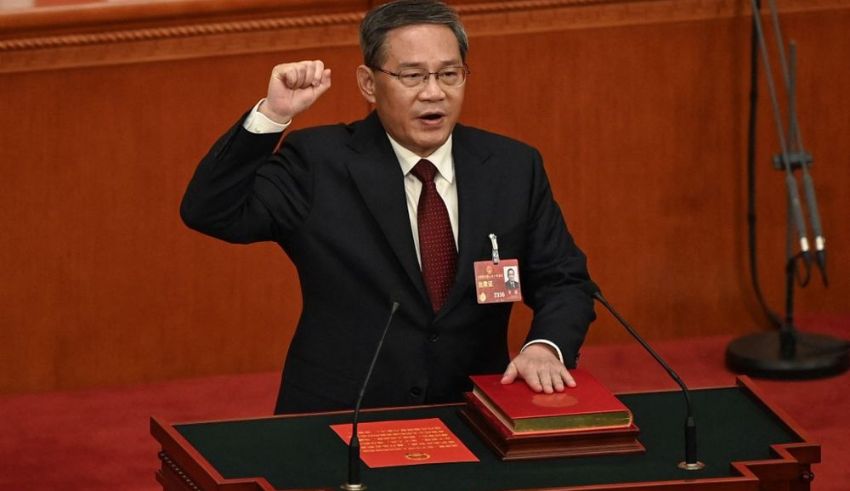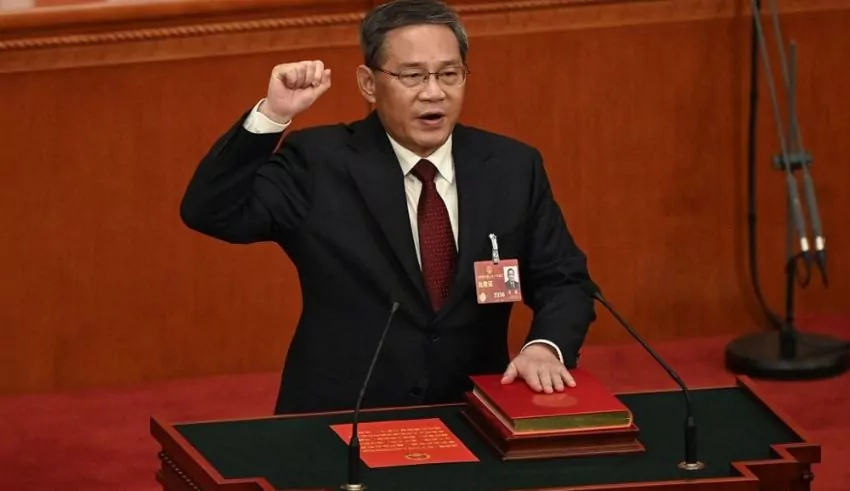

(C) 124news
On Wednesday, China’s Premier Li Qiang issued a plea for major powers to exercise restraint and prevent the emergence of a “new Cold War,” with an implicit reference to the United States. This call came as high-level officials from Asia and the U.S. gathered in Indonesia for diplomatic discussions.
China has expressed concerns about the formation of the U.S.-backed alliances in its neighborhood while grappling with disputes in the South China Sea and other regional matters. Premier Li, addressing an ASEAN-plus-three meeting involving Japan and South Korea, emphasized the potential for disputes to arise between nations due to misunderstandings, conflicting interests, or external influences.
“To keep differences under control, what is essential now is to oppose picking sides, to oppose bloc confrontation and to oppose a new Cold War,” Premier Li asserted. His statement reflects China’s desire for diplomatic engagement rather than escalating tensions.
The Association of Southeast Asian Nations (ASEAN), a 10-member regional bloc, is hosting separate summits with several major players, including China, Japan, South Korea, the United States, and Canada. These meetings provide a platform for significant powers to engage with ASEAN members and address regional rivalries.
Notably, U.S. Vice President Kamala Harris represented her country in place of President Joe Biden, while Premier Li attended on behalf of President Xi Jinping. This diplomatic exchange underlines the importance of the discussions.
Premier Li’s appeal echoes earlier warnings from China regarding the formation of NATO-like alliances in the Asia-Pacific region. In June, China’s Defence Minister Li Shangfu advocated for “inclusive cooperation” over the establishment of “small cliques” at the Shangri-La Dialogue in Singapore. This sentiment reflects China’s unease about the increasing involvement of the U.S. in regional partnerships.
These meetings precede the 18-member East Asia Summit, where Russian Foreign Minister Sergei Lavrov is expected to attend. The G20 summit in New Delhi over the weekend will also address critical geopolitical matters.
Harris took the opportunity to engage with ASEAN leaders, commending their commitment to international rules and regional stability. She announced the establishment of the first U.S.-ASEAN center in Washington, signifying Washington’s heightened regional engagement.
Japanese Prime Minister Fumio Kishida and South Korean President Yoon Suk Yeol are participating in both days of meetings, highlighting the significance of these diplomatic gatherings in navigating complex regional dynamics.
NextRise 2025-the biggest startup and tech event in Asia-is ready to take place in Seoul on June 26-27 at COEX,…
On this reunion occasion marking 20 years after their debut, the anticipation of the fans seems to be reaching greater…
South Korean boy band RIIZE is returning to Singapore on January 24, 2026 as part of their “RIIZING LOUD” Asia…
Experience Japan’s longest running all-night rock festival, RISING SUN ROCK FESTIVAL 2025 in EZO, with incredible acts, a wealth of…
United States Immigration and Customs Enforcement conducted audits of three Denver cleaning companies, leading to more than $8 million in…
Cricket fans, rejoice! The Olympic Council of Asia (OCA) has confirmed that cricket will be part of the 2026 Asian…
This website uses cookies.
Read More